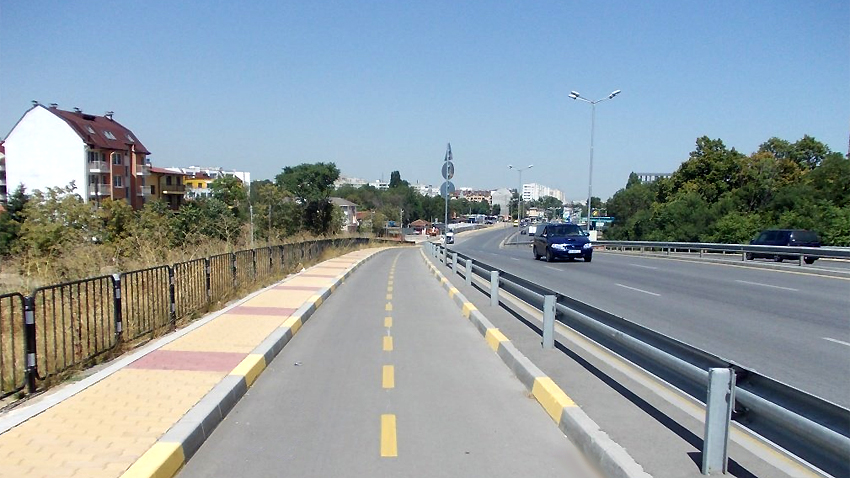By 2019 Sofia would have 150-200 kilometers of cycle lanes. These are the plans of the Sofia Municipality. But is this achievable at the backdrop of the urban environment in the Bulgarian capital city? What are the weaknesses of existing cycling infrastructure and what could motivate people start riding a bike? More from architect Petya Petrova from the Bike Evolution Association:
 “Currently existing infrastructure lacks maintenance. There is almost no cycling infrastructure at major crossings, which are some of the most dangerous places for cyclists. When a novice biker is riding on a lane they reach a crossroads with no infrastructure and are put in risk. Narrow cycling lanes are yet another problem. Fortunately, the Ministry of Regional Development has planned to adopt wider cycling lanes in its regulatory acts in the autumn.”
“Currently existing infrastructure lacks maintenance. There is almost no cycling infrastructure at major crossings, which are some of the most dangerous places for cyclists. When a novice biker is riding on a lane they reach a crossroads with no infrastructure and are put in risk. Narrow cycling lanes are yet another problem. Fortunately, the Ministry of Regional Development has planned to adopt wider cycling lanes in its regulatory acts in the autumn.”
According to changes there will be zones shared between pedestrians, riders and drivers and the speed limit there will be 30 kilometers per hour. Where it is possible cycling lanes will be separated from other traffic. There will be separate bike lanes in parks, too.

Bike Evolution members also call for creating pedestrian zones where cycling will be limited, just like in other European cities.
In residential areas a speed limit of 30 kilometer per hour would increase the safety of pedestrians, the NGO says.
According to latest data from 2010, bicycle riders are about 1 percent of all road traffic participants. The goal of the Sofia Municipality is this number to triple until 2019.
“This would be a big jump that requires stable policy. In addition to high-quality infrastructure, other measures that would urge children and adults to go to school or work by bike must be taken. A number of other measures not related to infrastructure can also be taken but the message of the Sofia Municipality towards the citizens is of high importance, too. Creating convenient crossroads and curbs is a message to cyclists that they are welcome in this city.”

English: Alexander Markov
NATO tests new 'no U.S.' mission model in Balkans NATO is testing its ability to deploy rapidly across Eastern Europe - without direct US support - as Washington shifts its approach to European defence and the war in Ukraine, the Associated Press..
Love blooms with renewed vigour every year on 14 February! Valentine's Day is increasingly being celebrated in Bulgaria as a holiday that inspires lovers to share beautiful moments together. Traditions include the exchange of cards, gifts and romantic..
From February 14 to 16, an event under the motto "Love and Wine" will allow Sofia residents and guests of the city to combine the Bulgarian holiday of wine Trifon Zarezan with Valentine's Day. It will be held on the pedestrian zone..

+359 2 9336 661
